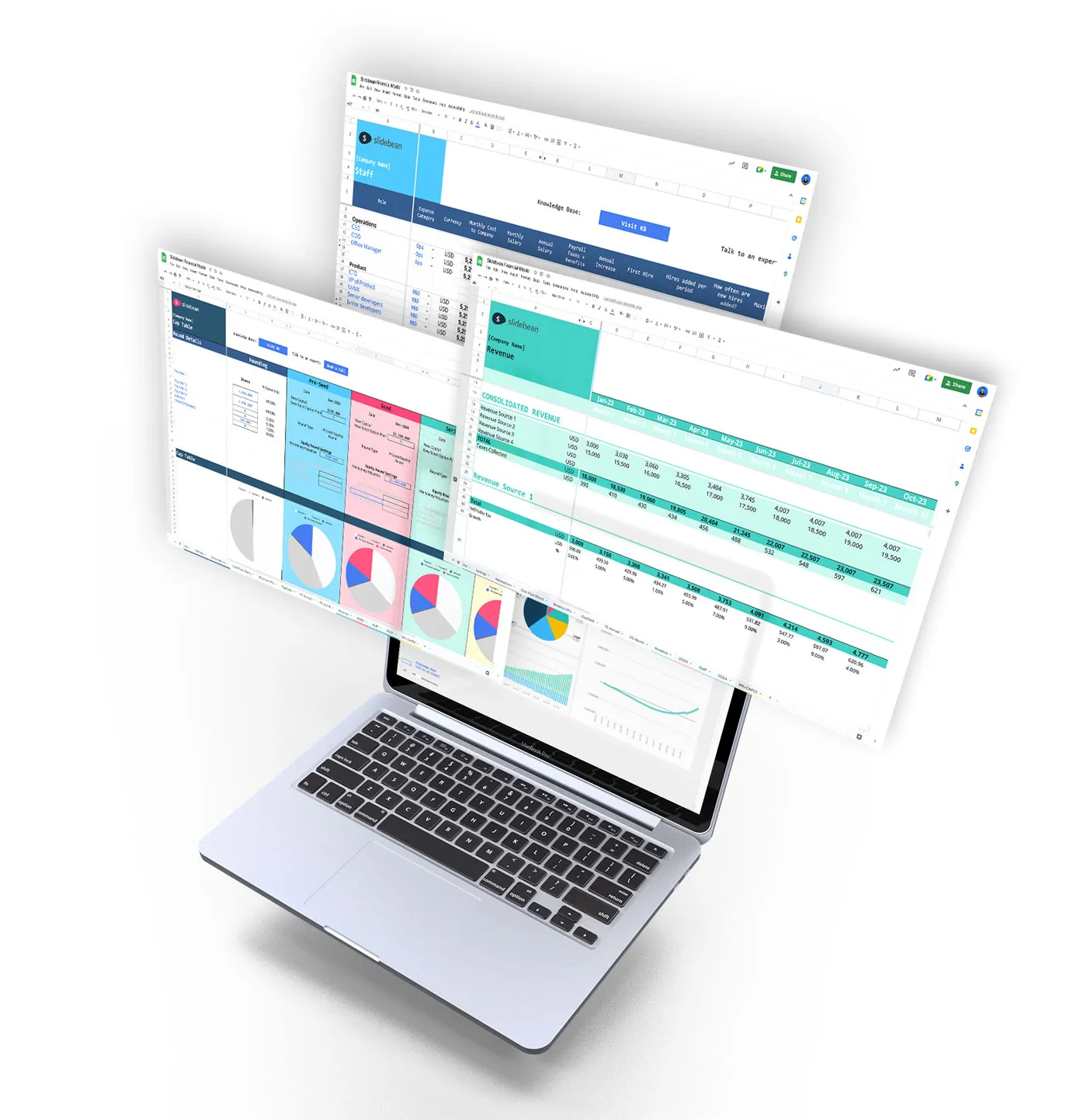
Comparing Investor Finder vs. LinkedIn Premium should give you precise answers, including which of the two platforms to use for which specific purpose. When it comes to matching Investor finder vs. LinkedIn Premium, we’ll certainly need to describe both platforms.
To do so, we’ll include their common uses, reach, and the objectives behind each of the two. Ideally, by the end of this article, you’ll have a clear idea about which website or service to use for which precise needs.
We’ll start by describing Slidebean’s very own Investor Finder service to give you a detailed description of LinkedIn’s Premium service offer after that.
The right app to seek investors
Have you ever explicitly wondered how to find an investor to financially back an idea? Investor Finder is the exact response to that. It’s genuinely the perfectly suitable app to meet that specific goal of connecting entrepreneurs with investors who can back a business goal.
Once you’ve nailed the right investor, you might still have ideas and wonder about a few areas, though. The percentage an angel investor should get is an example of that to which we’ll get shortly below.
Slidebean’s Investor Finder app
With Slidebean’s Investor Finder app, startups and small businesses can access 40,000+ angel investors and venture capital firms. The app sends users weekly matches that line up precisely with their choice of industry, stage, and geographic location. It really is that great!
Many founders and business owners are using Investor Finder today to discover investors for their startup, fruitful and honest as that. Give yourself the chance to find vetted investors & angels across all industries with this great new tool!
How investors make money
We’ll now narrow down how investors actually make money. Doing so should help startups’ most common financing needs during their early stages and help founders and owners reach their primary goal of locating an investor.
To make money investing in a startup, angels, VCs, or any investor can choose a mix or a single option out of a few choices. They can go for making tons of dividends with the startup’s main line of business, for example. Or they can choose to make money off that company’s eventual sale. Making returns based on their shares or stock in the company is another option. Or, ultimately (and for some), hoping to go public is another chance.
Selling a startup to a larger company can be a quick way to make funds off an investment. That’s especially so if any stock on the new enterprise is negotiated. This is why knowledge on valuations and mergers is a valuable piece of the puzzle while dealing with startup investment.
Trading on NASDAQ or the New York Stock Exchange can be motivations for many investors, as well. Yet, others might want to stay away from going public. And choose to follow actual revenue growth per day and monetize on dividends.
There are also convertible notes and loans for equity value. But we’ll let our CEO explain that via that linked note. He does so better than anyone! Check it out if you’d like to read up on more startup funding related options.
A word on dividends
Stock dividends can come out of mutual funds, stocks, and bonds. Together, they represent a share of a company’s profits that goes as payment out to shareholders. They’re perfect examples of ways in which investors can secure returns as a stable source of income.
The above is precisely why investing in business ideas run by people who can prove they can grow a business is in the investing parties’ best interest. Seeing that in a pitching team can mean better chances of creating profitable returns. So, truly work on your team slide!
Also, not all investors are aware of every possible investment option out there. Take that well into account! This means it’s always good to strengthen upon startup investment options before entering these conversations if you can.
To expand a bit on the above, let’s also zoom in on the percentages investors are more prone to hear as part of dealing with startups.

What percentage should an angel investor get?
Which is more or less the same as asking what percentage to offer an investor in some cases.
Most angel investors will go for 20 to 25% return on the money they invest in a startup. Venture capitalists (VCs) may go for higher, around 40% of the business, especially if you’re still testing and developing a product and their risk is high. Timing is also part of the entire picture in this sense.
What’s the difference between LinkedIn and Linkedin premium?
The difference between LinkedIn and Linkedin Premium is that the paid versions grant users access to added features. And several options make up Premium use in this case, too, not just a single one.
Divided between job search, talent recruiter, sales navigator, and premium professional, the last option is the plan perhaps most suited for businesses. It mostly offers what’s called InMail messaging (an inbox system), an advanced search feature, access to the people who’ve viewed your profile, and unlimited searches.
As an employment social media tool, the other packages focus more on seeking jobs, tracking job candidates, or following sales leads, respectively.
Is LinkedIn premium worth getting?
In the back of your mind, you’re most probably wondering: But is it worth it to get LinkedIn premium? And, of course, this is a most personal response.
As with everything, what’s worth our time and resources is mostly a question of how much that app or service suits our specific business or personal needs. How helpful this tool is will depend on our particular internal or external requirements.
Does LinkedIn Premium allow you to see anonymously?
Yet, suppose anonymity is vital for your business in any way. In that case, LinkedIn Premium is a necessity as it’s the one option on that platform that lets you browse privately.
In the end, making the best of this and any app is a matter of learning how to use it for business, marketing, and professional networking.
If you need a hand finding investors, now you know where to start. You can also get this for free as a part of our Founder's Edition plan.







